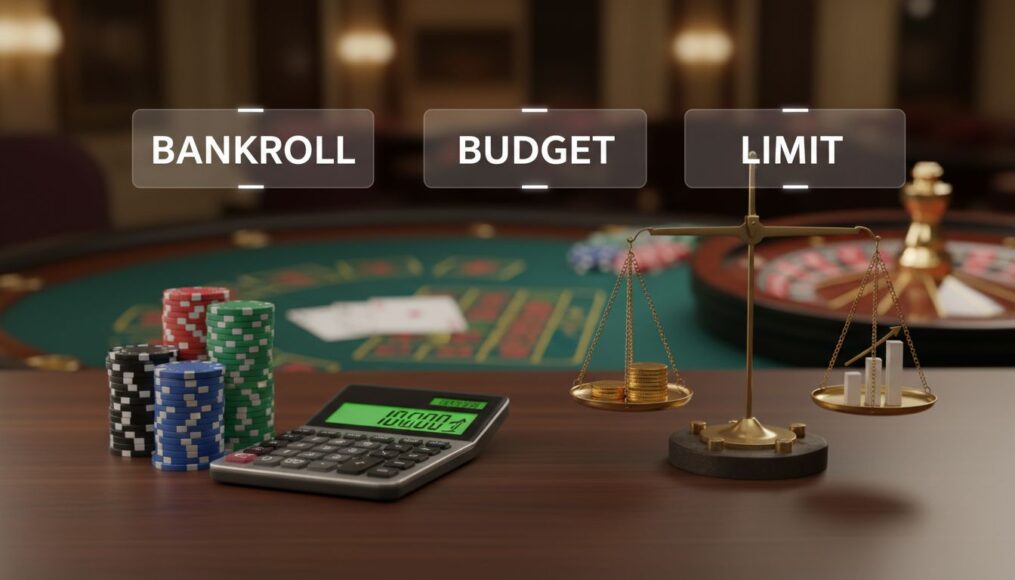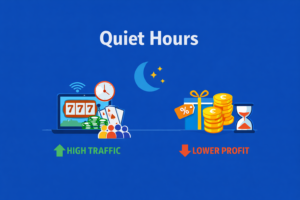Is Money Management That Important?

The allure of the casino world is undeniable. It offers a unique blend of entertainment, excitement, and the tantalizing possibility of significant wins. From the spinning reels of slots to the strategic depths of poker and baccarat, millions worldwide enjoy the thrill of casino games. While the dream of hitting a life-changing jackpot is a powerful draw, the reality is that successful and sustainable gambling hinges on one critical factor: effective money management.
Without a clear strategy for handling your funds, the exhilarating highs can quickly turn into frustrating lows, potentially leading to financial strain. It's not just about winning; it's about playing responsibly, extending your enjoyment, and ensuring that gambling remains a fun hobby rather than a source of stress. This is where the concept of bankroll management becomes paramount for every casino enthusiast.
Understanding and implementing sound money management principles is the cornerstone of a positive gambling experience. It empowers you to make informed decisions, mitigate risks, and ultimately, protect your financial well-being while still enjoying the vibrant world of online casinos and their diverse offerings.
Why Bankroll Management is Essential for Casino Players
Many players, especially newcomers, often overlook the importance of bankroll management, viewing it as an unnecessary restriction. However, it's the most fundamental strategy for anyone serious about gambling responsibly. Here’s why it’s so crucial:
- Prevents Overspending: The most obvious benefit is that it sets clear boundaries, preventing you from spending more than you can afford to lose. This protects your personal finances from the volatility inherent in casino games.
- Extends Playtime: By managing your bets relative to your total bankroll, you can ensure longer playing sessions, maximizing your entertainment value without constantly needing to deposit more funds.
- Reduces Stress: Knowing you're playing within your means removes the anxiety associated with potential losses, allowing you to enjoy the games more freely and make clearer decisions.
- Fosters Discipline: Adhering to a bankroll management plan builds discipline, a valuable trait not just in gambling but in many aspects of life. It teaches you to stick to your limits, even when emotions run high.
- Avoids Chasing Losses: One of the most common pitfalls in gambling is trying to win back lost money. A strict bankroll strategy helps you recognize when it's time to stop, preventing a downward spiral.
Practical Strategies for Effective Casino Money Management
Implementing bankroll management doesn't have to be complicated. It involves a few straightforward steps and a commitment to stick to them. Here are some actionable tips:
1. Set a Dedicated Gambling Budget
Before you even think about placing a bet, decide how much money you are willing to allocate for gambling. This should be an amount you can comfortably afford to lose without impacting your daily life or financial obligations. Consider setting this budget on a monthly, weekly, or even daily basis, depending on your playing frequency. Crucially, once this budget is spent, stop playing until your next allocated period.
2. Separate Your Gambling Funds
It's wise to keep your gambling money separate from your regular finances. This could mean using a specific e-wallet, a separate bank account, or even a physical envelope if you play at land-based casinos. This clear separation helps prevent accidental overspending from your essential funds.
3. Determine Your Unit Size and Bet Limits
Once you have your total bankroll, break it down into smaller units. A common strategy is to ensure each bet represents a small percentage of your total bankroll (e.g., 1-2%). For instance, if you have a €500 bankroll, a 1% unit size means each bet should be around €5. This approach protects your bankroll from being wiped out by a few unlucky streaks and allows for more playing rounds.
4. Understand Game Volatility and House Edge
Different casino games have varying levels of volatility and house edge. High-volatility games (like some slots) offer bigger, less frequent wins, while low-volatility games (like blackjack or roulette with even-money bets) offer smaller, more frequent wins. The house edge indicates the casino's statistical advantage. Factor these into your betting strategy; higher volatility might warrant smaller unit bets to extend playtime.
5. Set Win and Loss Limits (Stop-Loss and Take-Profit)
Beyond your overall budget, establish specific limits for each playing session:
- Stop-Loss Limit: Decide on a maximum amount you are willing to lose in a single session. If you hit this limit, walk away, regardless of how well you think you might turn things around.
- Take-Profit Limit: Equally important is setting a target for winnings. If you reach a certain profit margin, consider cashing out and ending your session. This locks in your gains and prevents you from giving them all back to the casino.
6. Avoid Chasing Losses
This is perhaps the most critical rule. When you're on a losing streak, the temptation to increase your bets to recover what you've lost can be overwhelming. However, this often leads to even greater losses. Stick to your predetermined unit size and limits. If you hit your stop-loss, take a break.
7. Take Regular Breaks
Long, uninterrupted gambling sessions can lead to fatigue and impaired judgment. Step away from the screen or table regularly. Clear your head, grab a drink, or do something else entirely. This helps maintain perspective and prevents impulsive decisions.
8. Never Gamble Under the Influence
Alcohol or other substances can significantly impair your decision-making abilities, leading to reckless betting and disregard for your budget. Always gamble with a clear mind.
The Long-Term Benefits of Responsible Gambling
By diligently applying these money management techniques, you transform gambling from a potentially risky activity into a controlled form of entertainment. It ensures that the casino remains a source of enjoyment and excitement, rather than a path to financial distress. Remember, even small, seemingly insignificant bets can accumulate over time, impacting your overall funds. Thoughtful, calculated betting is always the smarter approach.
The ultimate goal is to make gambling a sustainable hobby, not an addiction or a financial burden. Being cautious and watching out for yourself is the best way to enjoy the vast array of casino games, explore different bonuses, and utilize various payment options available at online casinos. Always prioritize your financial health and well-being.
If you ever feel that gambling is becoming a problem, please seek help. Many organizations offer support and resources for responsible gambling.
Most Recent News
Get the latest information








